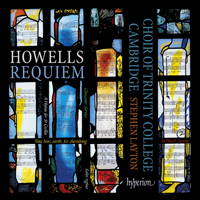 SPONSORED: CD Spotlight. An Encyclopedic Recital - Elizabeth Moak plays Judith Lang Zaimont, heard by the late Howard Smith.
SPONSORED: CD Spotlight. An Encyclopedic Recital - Elizabeth Moak plays Judith Lang Zaimont, heard by the late Howard Smith.
All sponsored features >>
Barbara Smith Conrad
American mezzo-soprano Barbara Smith Conrad was born Barbara Louise Smith on 11 August 1937 and grew up in a Baptist community at Center Point near Pittsburg in Texas, displaying an early aptitude and love for music.
She was one of the first African-Americans to study at the University of Texas at Austin (from 1956 until 1959). In 1957, after being awarded the leading role in a student production of Purcell's Dido and Aeneas (playing opposite a white student as Aeneas, her lover) she was forced to leave the production following campus-wide racial prejudice, and the episode received national attention. Harry Belafonte offered to fund her studies at an institution of her choice, but she chose not to move, and to continue her studies at Austin.
She went on to take leading operatic roles internationally, including at Vienna State Opera, Venezuela's Teatro Nacional, New York Metropolitan Opera, New York City Opera, Houston Grand Opera and Pittsburgh Opera. She also co-founded and co-directed the Wagner Theater Program, and had her own vocal studio in Manhattan.
Smith Conrad had become an early pioneer in the creation of more open and diverse university communities. Later she worked closely with the Dolph Briscoe Center for American History at the University of Texas at Austin. In 1987 she sang at the White House, and in 1995 performed for Pope John Paul II when he visited New York City. By 2010 the University of Texas had begun broadcasting advertisements featuring Barbara Smith Conrad's voice, and she became the subject of Mat Hames' feature-length documentary film When I Rise.
Barbara Smith Conrad died in Edison, New Jersey on 22 May 2017, aged seventy-nine.


